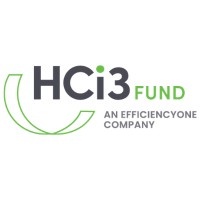
Nova Scotia Research and Development Tax Credit
At a glance
- Up to 15% of project cost
- Closing date : May 17, 2024
- Professional, scientific and technical services
- Nova Scotia
- For-profit business
- All revenue ranges
- All organization sizes
- Canadians
Overview
Tax credit of 15% for qualified scientific research and experimental development expenditures in Nova Scotia.
Activities funded
The eligible projects for the Nova Scotia Research and Development Tax Credit focus on advancing scientific research and development. These activities must align with the criteria for the federal scientific research and experimental development (SR&ED) investment tax credit.
- Scientific research activities conducted in Nova Scotia.
- Experimental development projects meeting SR&ED criteria.
- Initiatives that involve systematic investigation or search by experiment or analysis.
Eligibility
Eligibility for this grant is determined by specific requirements related to the corporation’s setup and location.
- The applicant must be a corporation, a corporation that is a beneficiary of a trust, or a corporation that is a member of a partnership.
- The corporation must have a permanent establishment in Nova Scotia.
- The scientific research must be carried out within the province of Nova Scotia.
Who is eligible?
Corporations, corporations that are beneficiaries of a trust, and corporations that are members of a partnership, with a permanent establishment in Nova Scotia, for scientific research carried out in this province.Eligible expenses
The Nova Scotia R&D tax credit facilitates investments in scientific research and experimental development within the province. Eligible projects typically involve innovation and technological advancements harnessing scientific methodologies.
- Scientific research leading to new or improved products, processes, or technologies.
- Experimental development to address technical challenges and achieve technical advancement.
- Projects that align with the criteria set for SR&ED investment tax credit at a federal level.
Eligible geographic areas
This grant is available to companies with a permanent establishment in Nova Scotia. This geographical restriction ensures that scientific research is conducted within the province.
- Permanent establishment in Nova Scotia.
How to apply
Determine Eligibility
- Confirm that your corporation has a permanent establishment in Nova Scotia.
- Ensure your expenditures qualify for the federal SR&ED investment tax credit.
Prepare Required Documentation
- Compile records of eligible R&D expenditures.
- Ensure you have documentation to support the scientific research conducted.
- Review Section 41 of the Income Tax Act (Nova Scotia) for specific legislative requirements.
Complete Form T2SCH340
- Download and complete the T2SCH340 form, Nova Scotia Research and Development Tax Credit.
- Provide accurate details of R&D activities and expenditures on the form.
Submission with Corporate Tax Return
- Attach the completed T2SCH340 to the corporation’s income tax return (T2) filing.
- File the tax return with the Canada Revenue Agency within 18 months of your corporation's tax year-end.
Retain Documentation
- Keep copies of all submitted forms and supporting documents for your records.
- Be prepared for any follow-up or audit requests from the CRA regarding claimed expenditures.
Additional information
The Nova Scotia R&D tax credit is designed to support corporations in Nova Scotia with eligible scientific research and development expenditures. The tax credit follows specific eligibility criteria and deadlines for filing, with implications on federal deductions.
- Administered by the Canada Revenue Agency
- Fully refundable at a rate of 15% of eligible expenditures
- Available to corporations, including those that are beneficiaries of a trust or members of a partnership with a permanent establishment in Nova Scotia
- Eligible expenditures need to qualify for federal SR&ED investment tax credit
- Filing deadline: 18 months after the corporation's tax year-end
- Carryback/carryforward: Not applicable
- Eligible expenditures are reduced by other forms of government and non-government assistance
- The credit reduces the federal pool of deductible SR&ED expenditures and qualified SR&ED expenditures
- Recapture of the credit will increase Nova Scotia tax otherwise payable
- Ability to renounce: On or before six months after the corporation's tax year-end
- Filing form: T2SCH340, Nova Scotia Research and Development Tax Credit
- Legislation: Section 41 of the Income Tax Act (Nova Scotia)
- Provincial website: Nova Scotia – Research and Development Tax Credit
Frequently Asked Questions about the Nova Scotia Research and Development Tax Credit Program
What is the Nova Scotia Research and Development Tax Credit?
How much funding can be received?
Who is eligible for the Nova Scotia Research and Development Tax Credit program?
What expenses are eligible under Nova Scotia Research and Development Tax Credit?
Who can I contact for more information about the Nova Scotia Research and Development Tax Credit?
Where is the Nova Scotia Research and Development Tax Credit available?
Is the Nova Scotia Research and Development Tax Credit a grant, loan, or tax credit?
More programs like this

START Program
Government of Nova Scotia
Youth Climate Action Fund
Halifax Climate Investment, Innovation and Impact Fund (HCi3)
Atlantic Fisheries Fund – Atlantic innovation, infrastructure or science partnerships funding
Fisheries and Oceans Canada (DFO)
Launch Export Atlantic Incubator
Government of Nova Scotia
Clean Foundation — Science Horizons Youth Internship
Clean Foundation
Nova Scotia innovation equity tax credit
Government of Nova Scotia
Europe Market Development Program
Government of Nova Scotia
Invest Nova Scotia — Incubation
Government of Nova Scotia
Centre for Women in Business
Centre for Women in Business